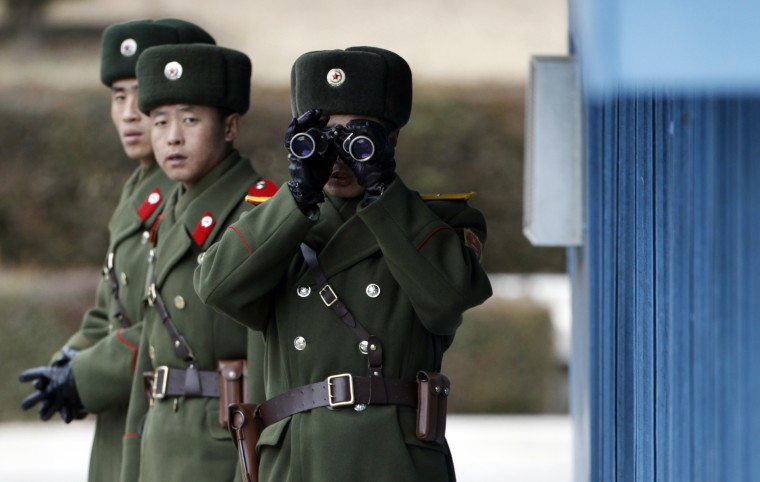North Korea attempted a missile launch early Sunday local time but it failed "almost immediately" according to U.S. and South Korean military officials.
The launch was attempted from Sinpo, some 400 miles from Japan, according to U.S. Pacific Command, and came hours before Vice President Mike Pence landed in South Korea on a planned visit.
Early assessments suggested the projectile was not the feared intercontinental ballistic missile (ICBM) capable of reaching the continental U.S., two U.S. military officials told NBC News.
The attempted launch comes just one day after the North held a massive parade to display its military might, including what experts said appeared to be new capabilities for long-range ICBMs. It marks the second time in as many months that a North Korean missile ended in an embarrassing explosion just after launch.
Related: North Korea Parades New Missile Launch Capability, Experts Say
President Donald Trump, who is at his Mar-a-Lago resort in Palm Beach, Florida, this weekend, was briefed on the launch, a senior White House official told NBC News.
"The president and his military team are aware of North Korea's most recent unsuccessful missile launch. The president has no further comment," Secretary of Defense James Mattis said in a statement Saturday night.
"U.S. Pacific Command is fully committed to working closely with our allies in the Republic of Korea and in Japan to maintain security," the military said in an earlier statement on Saturday.
The schedule of Pence's 10-day Asia visit was not expected to be altered, a senior White House official said.
Shin In-kyun, President of Korea Defense Network a civic group specializing in military affairs, told NBC News that Sinpo is North Korea's submarine port and the failed missile was likely a submarine-launched ballistic missile (SLBM).
"SLBMs are more threatening than any other type of missile of the same range because it can evade radar detection, including the THAAD," Shin said, referring to the Terminal High Altitude Area Defense anti-missile system provided to South Korea by the U.S. "If North Korea [can] complete building 3,000-ton submarine, they can then attack Guam, Hawaii and even Alaska with an SLBM."


